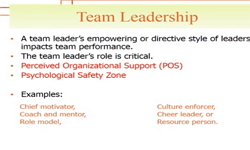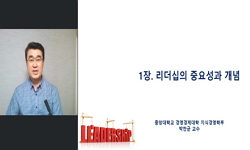The purpose of this study is to analyse how to develop and organize the Committee, a temporary organization to successfully host sporting events. For this purpose, the 2018 Pyeongchang Winter Olympics & Paralympics Organizing Committee (POCOG) and...
http://chineseinput.net/에서 pinyin(병음)방식으로 중국어를 변환할 수 있습니다.
변환된 중국어를 복사하여 사용하시면 됩니다.
- 中文 을 입력하시려면 zhongwen을 입력하시고 space를누르시면됩니다.
- 北京 을 입력하시려면 beijing을 입력하시고 space를 누르시면 됩니다.
https://www.riss.kr/link?id=T15120187
- 저자
-
발행사항
서울 : 서울대학교 대학원, 2019
-
학위논문사항
학위논문(석사) -- 서울대학교 대학원 , 행정학과 행정학전공 , 2019. 2
-
발행연도
2019
-
작성언어
한국어
- 주제어
-
DDC
350 판사항(22)
-
발행국(도시)
서울
-
기타서명
A Preliminary Study on the Organization and Operation of Temporary Organization
-
형태사항
v, 121 p. : 삽화, 표 ; 26 cm
-
일반주기명
참고문헌 수록
-
UCI식별코드
I804:11032-000000154195
- 소장기관
-
0
상세조회 -
0
다운로드
부가정보
다국어 초록 (Multilingual Abstract)
In terms of human resources and leadership, authoritarian and laissez faire leaership were widely observed. Authoritarian leaders made decisions on their own. On the other hand, laissez faire leaders left their full leadership to their members. As a result, there was a strong tendency to show a (-) correlation rather than a (+) correlation between human resources and leadership.
In terms of organizational structure and job analysis, the 'human mix' phenomenon with a mix of human resources was linked to results that could be either positive or negative depending on whether the team leader had the knowledge and attitude associated with the actual tasks being performed. If the team leader had a lot of knowledge and understanding of his duties, he could use them to promote motivation for his team members. On the other hand, if the team leader did not recognize the importance of the task clearly due to his or her ignorance and low interest, the concentration and performance of the team members would also decrease.
This study dealt with a provisional organization in the sports field to host sporting events that had been relatively less interested in existing administrative research. This is meaningful in that it supplemented the fact that much research had not been conducted even though it was an administrative ad hoc organization such as the Olympic Organizing Committee, and provided an opportunity to explore new research direction in relation to these provisional organizations.
The purpose of this study is to analyse how to develop and organize the Committee, a temporary organization to successfully host sporting events. For this purpose, the 2018 Pyeongchang Winter Olympics & Paralympics Organizing Committee (POCOG) and deputy diretors on training who worked at POCOG for about seven months are selected for an in-depth survey. Major studies included human resources, leadership, organizational structure and job analysis, and case analysis using job character theory. This resulted in the following conclusions:
In terms of human resources and leadership, authoritarian and laissez faire leaership were widely observed. Authoritarian leaders made decisions on their own. On the other hand, laissez faire leaders left their full leadership to their members. As a result, there was a strong tendency to show a (-) correlation rather than a (+) correlation between human resources and leadership.
In terms of organizational structure and job analysis, the 'human mix' phenomenon with a mix of human resources was linked to results that could be either positive or negative depending on whether the team leader had the knowledge and attitude associated with the actual tasks being performed. If the team leader had a lot of knowledge and understanding of his duties, he could use them to promote motivation for his team members. On the other hand, if the team leader did not recognize the importance of the task clearly due to his or her ignorance and low interest, the concentration and performance of the team members would also decrease.
This study dealt with a provisional organization in the sports field to host sporting events that had been relatively less interested in existing administrative research. This is meaningful in that it supplemented the fact that much research had not been conducted even though it was an administrative ad hoc organization such as the Olympic Organizing Committee, and provided an opportunity to explore new research direction in relation to these provisional organizations.
국문 초록 (Abstract)
먼저 인적원천과 리더십의 측면에서는, 전반적으로 리더 단독으로 의사결정을 하고 그 집행은 구성원들에게 맡기는 ‘전제형 리더십’과 리더 본인이 아닌 부하에게 권한과 책임을 넘기려는 ‘자유방임형 리더십’이 많이 관측되었으며, 전문직 팀장의 경우에는 강한 전제형 리더십을, 파견직 팀장의 경우에는 강한 자유방임형 리더십이 두드러지게 목격되었다. 결과적으로 인적원천과 리더십 사이에는 (+)의 상관관계보다 (-)의 상관관계를 보여주는 경향이 강했음을 알 수 있다.
조직 구성과 직무 분석 측면에서는, 여러 인적원천이 혼합된 ‘인력 혼합 현상’ 상황은 팀장의 ‘실제 수행하는 직무와 관련된 지식과 직무에 대한 긍정적 태도 보유 여부’에 따라 긍정적인, 또는 부정적인 업무 수행 결과로 연결되었다. 팀장 자신이 담당 업무에 대해 많은 지식을 가지고 잘 이해하고 있으면 이를 활용해 팀원들의 동기 부여를 촉진할 수 있었다. 반면 팀장 스스로 자신의 업무에 대해 잘 모르고 관심도 낮아 업무의 중요성을 명확하게 인식하고 있지 못한 경우 팀원들의 업무 집중도나 성취 또한 저하됨을 알 수 있었다.
본 연구는 기존의 행정 연구 분야에서 상대적으로 관심을 적게 가졌던 스포츠이벤트를 개최하기 위한 스포츠 분야의 임시조직을 다루었다. 이를 통해 이러한 임시조직이 올림픽과 같이 세계적으로 큰 행사를 치름에도 그 동안 이에 대한 많은 연구가 진행되지 못하였던 점을 보완하고 앞으로 새로운 연구 방향성을 모색할 수 있는 기회를 제공했다는 측면에서 의미를 가진다.
본 연구는 스포츠이벤트를 성공적으로 개최하기 위해 구성되는 행정 임시조직인 ‘조직위원회’의 효과적인 구성과 운영방법에 대해 검토하는 것을 목적으로 한다. 이를 위해 구체적으로 2...
본 연구는 스포츠이벤트를 성공적으로 개최하기 위해 구성되는 행정 임시조직인 ‘조직위원회’의 효과적인 구성과 운영방법에 대해 검토하는 것을 목적으로 한다. 이를 위해 구체적으로 2018 평창동계올림픽&패럴림픽조직위원회에서 약 7개월 간 근무한 수습사무관들을 대상으로 조직 구성 및 분석을 위한 설문조사를 진행하였고, 유의미한 결과를 도출하기 위한 면접조사를 실시하였다. 본 연구에서 사용한 주요 내용은 인적원천과 리더십, 조직 구성과 직무 분석, 직무특성이론 등을 사용한 사례 분석 등이었다. 그 결과 다음과 같은 결론을 도출하였다.
먼저 인적원천과 리더십의 측면에서는, 전반적으로 리더 단독으로 의사결정을 하고 그 집행은 구성원들에게 맡기는 ‘전제형 리더십’과 리더 본인이 아닌 부하에게 권한과 책임을 넘기려는 ‘자유방임형 리더십’이 많이 관측되었으며, 전문직 팀장의 경우에는 강한 전제형 리더십을, 파견직 팀장의 경우에는 강한 자유방임형 리더십이 두드러지게 목격되었다. 결과적으로 인적원천과 리더십 사이에는 (+)의 상관관계보다 (-)의 상관관계를 보여주는 경향이 강했음을 알 수 있다.
조직 구성과 직무 분석 측면에서는, 여러 인적원천이 혼합된 ‘인력 혼합 현상’ 상황은 팀장의 ‘실제 수행하는 직무와 관련된 지식과 직무에 대한 긍정적 태도 보유 여부’에 따라 긍정적인, 또는 부정적인 업무 수행 결과로 연결되었다. 팀장 자신이 담당 업무에 대해 많은 지식을 가지고 잘 이해하고 있으면 이를 활용해 팀원들의 동기 부여를 촉진할 수 있었다. 반면 팀장 스스로 자신의 업무에 대해 잘 모르고 관심도 낮아 업무의 중요성을 명확하게 인식하고 있지 못한 경우 팀원들의 업무 집중도나 성취 또한 저하됨을 알 수 있었다.
본 연구는 기존의 행정 연구 분야에서 상대적으로 관심을 적게 가졌던 스포츠이벤트를 개최하기 위한 스포츠 분야의 임시조직을 다루었다. 이를 통해 이러한 임시조직이 올림픽과 같이 세계적으로 큰 행사를 치름에도 그 동안 이에 대한 많은 연구가 진행되지 못하였던 점을 보완하고 앞으로 새로운 연구 방향성을 모색할 수 있는 기회를 제공했다는 측면에서 의미를 가진다.
목차 (Table of Contents)
- 제 1 장 서론 1
- 제 1 절 연구의 배경 및 목적, 필요성 1
- 제 2 절 연구의 대상 및 범위 8
- 제 3 절 본 연구의 기대 효과 9
- 제 1 장 서론 1
- 제 1 절 연구의 배경 및 목적, 필요성 1
- 제 2 절 연구의 대상 및 범위 8
- 제 3 절 본 연구의 기대 효과 9
- 제 2 장 이론적 논의와 선행 연구 검토 11
- 제 1 절 임시조직 구성과 운영에 관한 연구 11
- 1. 임시조직의 개념 및 특성 11
- 2. 관련 선행 연구 13
- 제 2 절 스포츠이벤트 관련 논의 14
- 1. 스포츠이벤트의 개념 14
- 2. 스포츠이벤트의 특성 14
- 3. 관련 선행 연구 17
- 제 3 절 스포츠 행정조직 관련 논의 18
- 1. 스포츠 행정조직의 개념 18
- 2. 스포츠 행정조직의 구성 및 운영상 특징 19
- 3. 조직위원회의 개념 및 특성 20
- 4. 관련 선행 연구 22
- 1) 임시조직의 리더십과 직무분석이론 23
- 2) 임시조직의 구성과 운영 관련 이론 26
- 제 3 장 연구 방법 및 설계 33
- 제 1 절 연구 대상 33
- 1. 2018 평창동계올림픽&패럴림픽 개관 33
- 2. 2018 평창동계올림픽&패럴림픽조직위원회 소개 35
- 3. 연구 대상자 소개 37
- 제 2 절 자료 수집 및 분석 40
- 1. 자료 수집 40
- 2. 연구 분석틀과 분석 방법 43
- 제 4 장 분석 결과 66
- 제 1 절 팀장의 인적 원천과 리더십 스타일의 관계 67
- 1. 공통적인 지적 사항 67
- 2. 전문직 팀장의 경우 : 전제형 리더십 70
- 3. 파견직 팀장의 경우 : 자유방임형 리더십 74
- 제 2 절 조직 구성과 직무 분석이 업무에 미치는 영향 77
- 1. 공통적인 사항 77
- 2. 조직 구성이 실제 업무에 미치는 영향 79
- 3. 직무 분석이 실제 업무에 미치는 영향 89
- 제 3 절 스포츠 행정조직 구성 및 운영 관련 쟁점 93
- 제 5 장 결론 100
- 제 1 절 연구 결과의 요약과 정책적 제언 100
- 제 2 절 연구의 한계 및 향후 연구과제 103
- 참고1. 조직위원회 팀장급 인력 유형 105
- 참고2. 개별면담 전 설문조사 문항 내용 113
- 참고문헌 114
- Abstract 120












